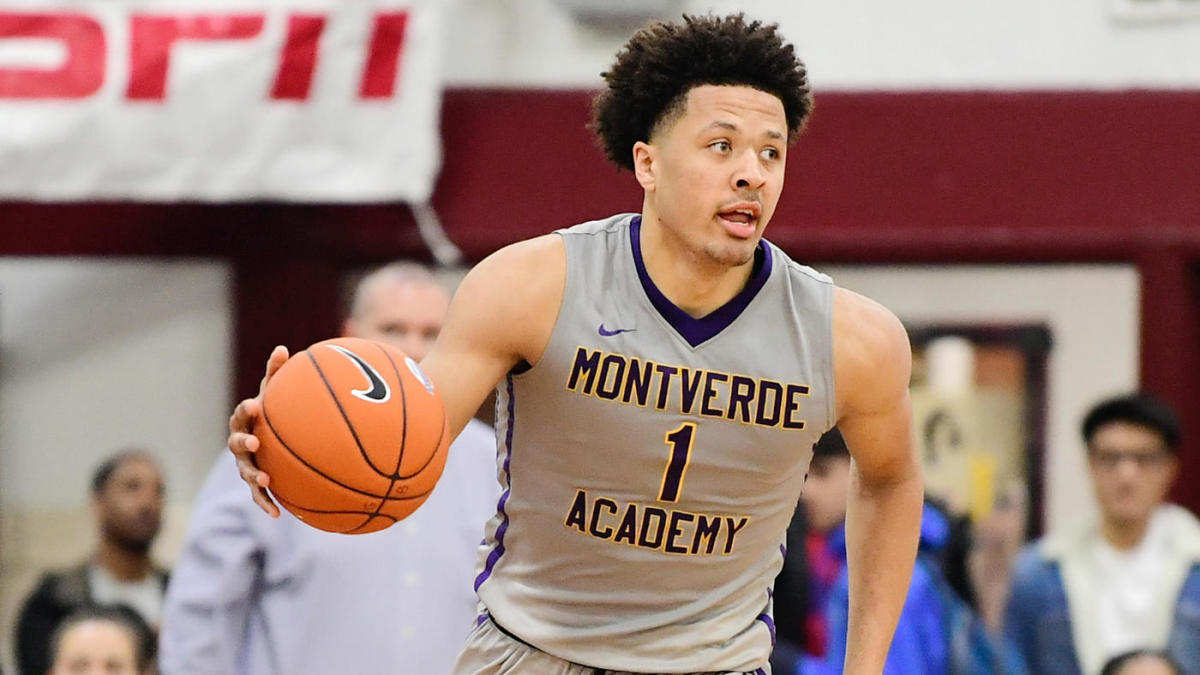MORGANTOWN, W. Va. — Aside from some YouTube clips, I’ve never seen Cade Cunningham play a single second of high school basketball.
The same can be said for Makur Maker.
I’ve never had an opportunity to speak with either one, but I can assure you, they are what’s right about college basketball right now.
And while it seems every other major sport right now is running through a gauntlet to see what they can do or can’t do in getting going under a coronavirus pandemic that simply won’t go away, college basketball gets to simply wait behind the curtain praying for an easier transition to beginning its season.
The sport is not without its talking points, whether it is Rick Pitino’s suggestion to begin the season next January and play only conference games or a NBA draft deadline for underclassmen getting extended all the way into August.
For good measure, we could discuss the impact of the G League’s development program, which could take its portion of the top high school players each year who are looking to bypass college without going overseas.
Or we could talk about Cunningham and Maker, two young men who have stood up and made decisions on their immediate future that deserve to be applauded.
We’ll begin with Cunningham, a 6-foot-6 point guard who is projected by many to be a top three pick in the 2021 NBA Draft.
Last Nov., Cunningham signed with Oklahoma State — meaning WVU fans could get to see him first-hand this season — where his older brother, Cannen, is an assistant with the Cowboys.
Seven months later, the NCAA hit Oklahoma State with sanctions, including a one-year postseason ban, after an FBI probe had included former OSU assistant coach Lamont Evans and charged him with making illegal payments to players and recruits. Evans ultimately served three months in prison in 2019.
It would have been so easy for Cunningham to ask for his official release from the school and reopen his recruitment.
He didn’t.
“It’s a testament to the kids that we have in our program and their families,” Oklahoma State coach Mike Boynton said in a press conference following the announcement of the NCAA’s sanctions, of which OSU is appealing. “But some of the work that the staff does when we get them here and showing them their value, that we’re going to help them get better, that we’re not just going to fall on empty words, that we’re really going to care about them as people when they get here.”
There are no guarantees Oklahoma State will win its appeal with the NCAA and there are no assurances Cunningham will get an opportunity to play in the NCAA tournament.
Yet the young man stuck to his word. In today’s world of recruiting, that is extremely rare.
Maker, a 6-11 center from Phoenix, has a recruiting story just as interesting.
The five-star prospect had all the usual suspects chasing after him, including the likes of UCLA, Kentucky and Kansas.
He committed to Howard just last week.
That would be Howard from the Mid-Eastern Athletic Conference.
That would be Howard, which finished 4-29 last season and hasn’t played in an NCAA tournament since 1992.
This is no joke or gimmick, the furthest thing from one, to be honest.
It is Maker making a stand in an attempt to bring the country’s historically black colleges and universities (HBCU) into the same light as the top Division I schools.
“I was the 1st to announce my visit to Howard & others started to dream “what if,” Maker tweeted. “I need to make the HBCU movement real so that others will follow.”
HBCU schools operate on just a fraction of the budgets found at major Power 5 schools, both athletically and academically.
If other top African American recruits begin to follow Maker’s lead, the hope of the movement is those schools will begin to receive more recognition and TV money to help fund those schools to be more on par with its competitors.
In what was already going to be an unprecedented college hoops season to begin with, the choices made by both Cunningham and Maker at least show that those playing the game have their hearts and heads in the right place.
TWEET @bigjax3211




